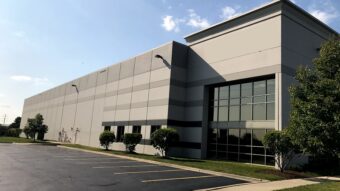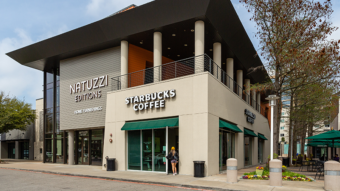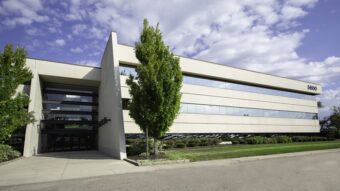The Indianapolis industrial market is finishing its 25th consecutive quarter of positive absorption, fueled by demand from e-commerce, consumer goods and general distribution businesses. As the region’s strong business climate and central Midwest location continues to attract tenants, there are growing concerns about how the labor shortage could affect the market for the balance of 2018 and into 2019.
With a July 2018 unemployment rate of 3.2 percent in Indiana – and 3.6 percent in Indianapolis – some industrial businesses are finding it a challenge to find skilled workers. Many of today’s industrial businesses rely on technology and sophisticated sorting, tracking and distribution systems to run their operations. This has increased the demand for skilled labor in this sector. Companies in the lean manufacturing arena, high-volume distribution services and even traditional distribution organizations need to be assured the availability of needed labor can be a check mark in the evaluation of our Central Indiana marketplace.
The good news is that there are creative solutions being introduced that can help offset these challenges and prepare businesses to identify, recruit and retain workers. As businesses continue to expand their distribution and manufacturing footprints, it is important to examine all options to help businesses achieve their maximum level of productivity.
One significant effort to note is the $1 billion workforce development initiative implemented by the State of Indiana. The funds offer support to businesses that are investing and creating jobs in the state. The initiative provides increased access to job training; grants for industry certification; tuition assistance; and other programs that can significantly benefit businesses in advanced manufacturing, logistics and other industrial sectors.
In addition, many businesses are working with county and local government entities that provide support for job seekers. Among those efforts are:
Transportation initiatives – Industrial businesses are setting up transportation options, including buses and van pools, to help get workers to job sites from a wider geographic area. These types of options also help employees save on their own transportation costs, which is an added benefit the company can promote when recruiting. Finally, there is a green element to this initiative which makes it increasingly popular to certain employers as well as employees.
Higher wages – Some businesses are realizing that it is necessary to pay higher wages to attract workers. While the additional labor costs have an impact on the company’s bottom-line profits, those higher wages are easily offset by the added revenue achieved when operating an industrial facility at full capability and with fully invested employees.
Temporary staffing – these short-term employment services provide a valuable service to businesses that are struggling to fill jobs. There is an added expense, but it can be offset by the added productivity in the facility. Additionally, the business managers can focus on running their business instead of continually recruiting and interviewing potential employees.
The industrial sector has been on a strong run for several years and should continue to move at a steady pace in the foreseeable future. Looking ahead to 2019, the market should continue to see strong leasing demand and additional construction activity. Rental rates will continue to rise as land pricing continues to rise; material costs are increasing, and labor costs are seeing increases, too. Even with these elements in the market, high-quality industrial buildings continue to attract tenants to the market and capital investment in Central Indiana doesn’t look to be slowing down.
While the labor shortage is a concern that must be addressed, it is an issue that can be managed with a little creativity and advanced planning. By looking ahead and working collaboratively with local, county and state agencies, businesses can lessen the impact of the worker shortage and continue to focus on growing their businesses.
Sean McHale is a principal in the Indianapolis office of Avison Young.



